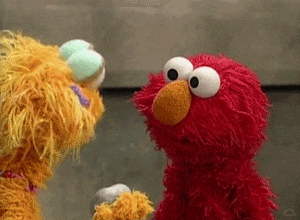Have you ever heard of “Blue Zones”?
These pockets of the world are known for having citizens who live exceptionally long, healthy lives.
Some of these locations may sound familiar:
Okinawa, Japan (home of Mr. Miyagi from Karate Kid!). Sardinia, Italy. Nicoya Peninsula, Costa Rica. Icaria, Greece.
These locations have a higher percentage of people who live longer due to their local-whole foods diet, high vegetable consumption, low instances of disease, rich social interactions, low stress, and plenty of physical activity.
Books, documentaries, and countless news articles have championed these societies, and millions upon millions of health conscious individuals have modeled their lifestyles after how these people live.
There’s just one problem with this amazing story.
It’s not actually true.


The First Ig Nobel Prize in Demography
Last month, Dr. Saul Justin Newman was awarded the first “Ig Nobel Prize” in Demography.
These awards are given out annually for scientific research that “makes people laugh, then think.”
For this particular award, Newman was recognized for debunking pretty much all of the findings of any study relating to the Blue Zones.
Here’s what Dr. Newman discovered:
“The highest rates of achieving extreme old age are predicted by high poverty, the lack of birth certificates, and fewer 90-year-olds.
Poverty and pressure to commit pension fraud were shown to be excellent indicators of reaching ages 100+ in a way that is ‘the opposite of rational expectations.’”
It turns out that most of the “very old, healthy” individuals in these blue zones were simply a result of very poorly kept records, pension fraud, and outright lying.
Let’s take a look at what actually happens on Okinawa:
“Despite vegetables and sweet potatoes being promoted as key components of the Okinawan ‘Blue Zone’ diets, according to the Japanese government, Okinawans eat the least vegetables and sweet potatoes in Japan and have the highest body mass index.”
Ooooof. So, what the heck do we do now!?
Beware anecdotal narratives that make dramatic promises
Spend enough time on social media, and you’ll stumble across people telling you to only eat meat, eliminate carbs completely, how “this one supplement saved their life,” or that doing XYZ cured their illness, and so on.
These anecdotal stories, especially when they have a villain, a victim and a heroic tale about overcoming adversity, are unbelievably powerful. They’re also often used to sell you a solution in a pill or powder form.
The good news is we data that is being constantly refined by science.
We don’t actually need to know what the people of Okinawa eat, nor do we need to study the daily habits of a particular community in Costa Rica.
Don’t get me wrong, I love a good whimsical tale about the habits of a far off land too, but it still comes back to reality and science!
And we can remember that we need to do what’s best for our particular situation. That might include therapy, it might include weight loss medication, it might include just focusing on sleep right now!
That’s up for us to decide, and we can do so confidently. Not because it’s what happens in Costa Rica or Greece, but simply because it’s what’s best for us.
Here are some of the ways in which we can positively impact our lifespan and/or healthspan.
Yep, some of these things are part of the “Blue Zone Diet”… just without the sensationalism and pension fraud.
And many of them might be outside of our control!
For example, social determinants of health (financial stability, access to health care, education, our neighborhood) are strongly correlated with all-cause mortality, and many of these things might be unavailable to large portions of the population.
Life is Messy
I don’t bring all this up to tell you to avoid a Blue Zone diet.
Heck, you could do a lot worse than eating a Mediterranean diet! Of course you’ll most likely lose weight and feel healthier if you eat mostly fresh fish, whole foods, and vegetables.
I bring all this up to remind you that life is messy.
A long healthy life is a combination of dozens interconnected things (like those listed above), thousands of decisions made over our lifetime, plus stuff like genetics, society, and luck! What works for one person might not work for the next person, and there’s no “one diet fits all” solution to our problems.
We could get hit by a bus tomorrow, get a cancer diagnosis despite “doing everything right,” or experience a freak accident that changes everything next week.
So, rather than chasing immortality through sensationalized anecdotes, or getting swept up in the latest Social Media trend…
We can keep our focus on the stuff that we feel pretty damn confident will make us better off tomorrow than we are today.
Like the things on that list above! Now if you’ll excuse me, I’m going to go do some push-ups, eat a vegetable, and take a quick walk while calling a friend.
-Steve
P.S. Hat tip to my friend Jodi Ettenberg, whose heartbreakingly powerful story about acceptance I linked above. It was her newsletter that led me to this article!
###




